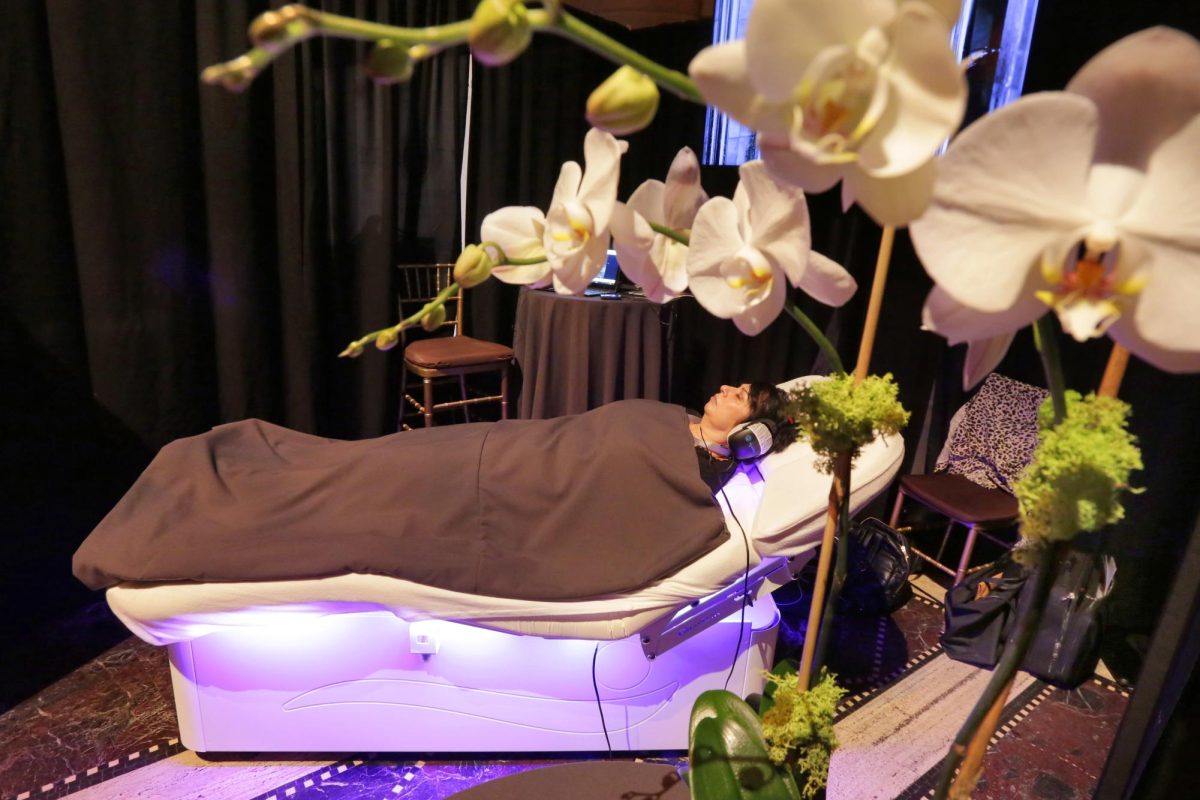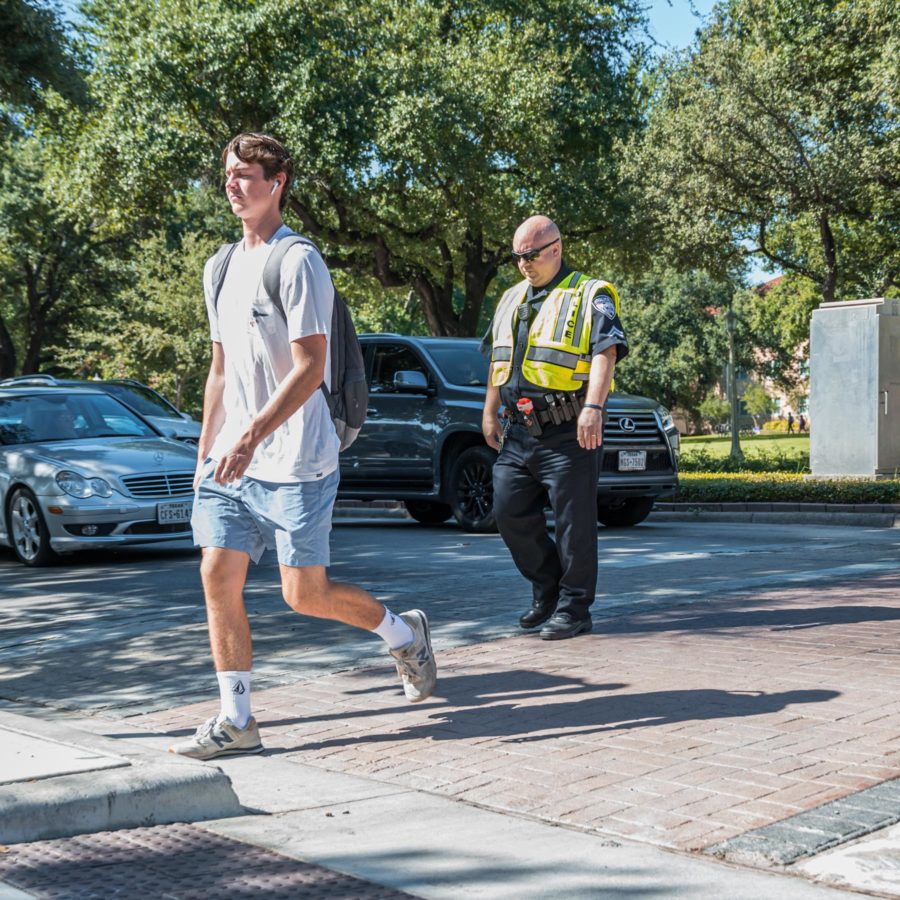A federal lawsuit will move forward on claims that minority students face higher risks of discrimination and that university officials responded to discrimination allegations with “deliberate indifference.” However, many of the claims in the Jane Doe discrimination suit have been dismissed.
U.S. District Judge Barbara Lynn issued a series of rulings earlier this month throwing out some of the claims and telling the young women who brought the suit they can no longer remain anonymous.
Lynn dismissed all of the claims made on behalf of Jane Doe’s No. 1, No. 2 and No. 3 against five of the lawsuit’s eight defendants: Russell Mack, an instructor of strategic communication; Dr. Rob Garnett, the associate dean of the John V. Roach Honors College; Aaron Chimbel, a former journalism professor at TCU; Leigh Holland, a Title IX investigator; and Dr. Darron Turner, TCU’s former chief inclusion officer and Title IX coordinator.

Chancellor Victor Boschini announced in an email to students and faculty Thursday that Turner recently decided to retire from his position. Aisha Torrey-Sawyer, director of diversity and inclusion, will serve as the interim senior advisor to the chancellor and chief inclusion officer. A search committee will be formed to find a permanent replacement.
Lynn also dismissed most of the claims against TCU and former Honors Dean Diane Snow.
TCU issued a statement to TCU360 on the rulings:
“TCU does not comment on specific allegations in pending litigation beyond the papers we file in court. Consistent with that practice, we can say that we respect the court’s carefully considered decisions that dismissed many of the claims and most of the individual defendants.”
Lawyers for the women did not respond to calls for comment.
The initial lawsuit, filed in January of 2020, accused Snow of verbally and physically abusing Jane Doe No.1 during a summer course in Washington D.C. It also claimed that TCU created an environment of hostility and discrimination toward minority students.

The claim that Snow assaulted Jane Doe No. 1 in D.C. was not dismissed.
Jane Doe’s No. 2 and 3 joined the lawsuit in April of 2020. TCU filed a motion to dismiss the suit in May, saying that the plaintiffs did not show how any alleged discrimination caused them to be deprived of educational or other benefits.
Lynn severed the claim of assault against retired Dean of the AddRan College of Liberal Arts Andrew Schoolmaster from the lawsuit. The claim will be heard separately from the lawsuit.
Lynn dismissed all but one of the claims with prejudice, which means that they cannot be brought back to the court.
In ruling that the young women must identify themselves to continue the case, Lynn wrote:
“. . .Plaintiffs have not demonstrated that the need for anonymity outweighs the presumption of openness mandated by procedural custom and constitutional considerations.”
All three women made similar claims of discrimination by TCU and university officials.
The women made most of the allegations under Title VI and IX – federal statutes that protect against discrimination on the basis of race and sex respectively.
Lynn outlined the two main “avenues” on which Title VI and IX violations are based – official policies of discrimination and deliberate indifference towards alleged discrimination. The suit claimed both.
Official policy theory
Lynn ruled that the women’s claims were “sufficient” to allege that TCU has an official policy of discrimination.
“The Court finds that these allegations, construed as true at this stage, are sufficient to allege that TCU’s policy or custom of inadequately handling reports of race and gender discrimination constitutes an official policy of discrimination that created a heightened risk of discrimination for Plaintiffs,” she wrote.
The court will consider the question of whether TCU has an actual policy of discrimination at a later stage of the suit.
Deliberate indifference
Lynn addressed each woman’s claim of discrimination with deliberate indifference. She dismissed the Title VI and IX claims made by Jane Doe No. 2 and Jane Doe No. 3.
Lynn ruled Jane Doe No. 2 failed to present specific facts that proved discrimination based on her race or gender.
She also ruled that Schoolmaster’s conduct toward Jane Doe No. 2 was not pervasive. She found that TCU’s handling of Jane Doe No. 2’s reporting of Schoolmaster’s harassment “do not show that TCU acted with deliberate indifference,” towards her allegations.
Lynn agreed with TCU that Jane Doe No. 3 did not plead that “she was treated differently from similarly situated students in her protected class.”
In the case of Jane Doe No. 1, Lynn ruled that the alleged facts are enough to show that a TCU official responded to discrimination allegations with deliberate indifference. Specifically, the judge mentioned the contention that Turner did not follow up on Jane Doe No. 1’s complaints until after this lawsuit was filed.
Lynn also concluded that Jane Doe No. 1 pled sufficiently that she was treated differently from students in her protected class and intentionally discriminated against. The judge cited the treatment of Jane Doe No. 1’s “white counterparts” on the D.C. trip as support for her decision.
Hostile environment claim upheld for Jane Doe No. 3
While Lynn dismissed Jane Doe No. 3’s Title VI and IX claims based on deliberate indifference, she upheld the woman’s Title VI claim based on the hostile environment theory.
Lynn wrote that the allegations of harassment based on Jane Doe No. 3’s race were so “severe, pervasive and objectively offensive,” that she was deprived of educational benefits.
The judge also cited allegations that Turner had knowledge of the discrimination occurring and acted with indifference as evidence that Jane Doe No. 3 was in a hostile environment.
Title IX claims that Jane Doe No. 3 faced pervasive harassment based on her sex were dismissed.
More Title VI, VII, and IX claims upheld for Jane Doe No. 1
Lynn ruled that the facts presented by Jane Doe No. 1 were sufficient to claim discrimination under Title VI and IX. Jane Doe No. 1’s suit claimed she was deprived of educational benefits and retaliated against because of her alleged discrimination complaints to the university.
Further, her claims of employment discrimination under Title VII were also upheld because of the alleged fact that TCU failed to “pay her an hourly compensation that was equal to that of her similarly situated white female counterparts because of her race.” The court also found Jane Doe No. 1’s retaliation claim under Title VII sufficient, because of the alleged fact that her work hours were reduced after she made a discrimination complaint to Turner.
Jane Doe No. 1’s claim that she was discriminated against because of her claimed disability of asthma was dismissed by Lynn.
“Her allegations are not sufficient to establish that Jane Doe No. 1 was denied benefits of the DC program, or any other benefit offered by TCU, due to her asthma,” the ruling stated.
Legal duty of care claims dismissed
All of the negligence claims made by the plaintiffs against TCU and other defendants were dismissed by Lynn.
The judge cited a Texas law precedent that plaintiffs must “produce evidence of a legal duty owed by the defendant to the plaintiff, a breach of that duty and damages proximately caused by that breach.”
Lynn was not convinced that TCU or defendants like Turner and Holland owed the plaintiffs a legal duty. Thus, the claims of negligence were dismissed.
She also used this reasoning to throw out claims that TCU was negligent in its hiring and retention of the defendants.
“Jane Doe No. 1 does not allege specific facts that any of TCU’s hiring, retaining, supervising or training practices are inadequate or that TCU acted negligently with respect to hiring Dr. Snow, Dr. Gooding, Dr. Garnett, Dr. Turner or Ms. Holland in light of Jane Doe No. 1’s alleged injuries,” Lynn wrote.
DEI misrepresentation claim dismissed
Lynn dismissed a claim that TCU misrepresented its environment and academic experience through its Diversity Equity and Inclusion (DEI) campaign.
Jane Doe No. 1 alleged that the misrepresentations aimed to “induce racial minorities and women to enroll in TCU despite its hateful legacy,” and should be considered an act of fraud.
Lynn wrote that the DEI campaign and the statements it promoted about the university did not amount to “material misrepresentations” that can form the basis of a fraud claim.










